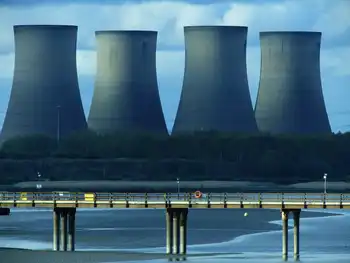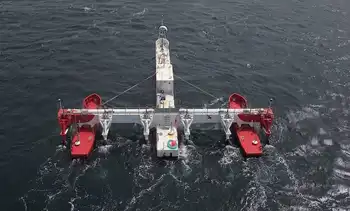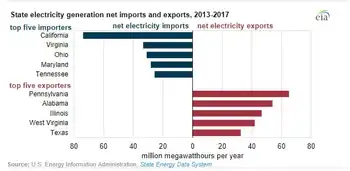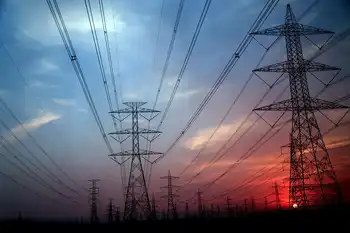Two PSC staffers resign as nuclear plant weighed
FLORIDA - Two top Public Service Commission staffers resigned and two others went on administrative leave as alleged ethics lapses again overshadowed a hearing on proposed rate increases — this time to pay for new nuclear power plants.
At least the appearance of a too-cozy relationship with Florida Power & Light Co., one of two utilities seeking higher nuclear rates, led to the resignation of Ryder Rudd as director of strategic analysis and governmental affairs.
Rudd, whose duties included lobbying the Legislature, last month acknowledged he and his wife attended a Kentucky Derby Party at the home of an FPL executive. That disclosure came as the commission began hearings on a separate FPL request to raise its base rates.
Commissioner Nancy Argenziano's chief adviser, Larry Harris, also resigned at her request after admitting he gave the private messaging code for his smartphone to an FPL executive.
Argenziano questioned Harris after reading an online report over the Labor Day weekend posted by the Miami Herald/St. Petersburg Times Tallahassee Bureau saying at least three commission staffers had given smartphone codes to an FPL lawyer. That potentially allowed utility officials to communicate directly with commissioners outside public view.
Commission spokeswoman Cynthia Muir confirmed both resignations. Muir said Commissioner Lisa Edgar also put her top aide, Roberta Bass, on administrative leave pending further review. The Herald/Times later reported William Garner, chief adviser to commission Chairman Matthew Carter, also had been placed on administrative leave. Garner had given the private code for instant messaging from his smartphone and Bass had done so for Edgar's smartphone, the newspapers reported.
State Sen. Mike Fasano, R-New Port Richey, dashed off a letter to Senate President Jeff Atwater, R-North Palm Beach, asking him to let the chamber's Ethics and Elections Committee question the commissioners and their staffers.
"It is unfortunate that the agency tasked to make certain that a proper balance between the needs of the business community and the utility customer is maintained is so obviously skewed toward the utilities," Fasano wrote.
Last week, Fasano also urged Gov. Charlie Crist to hold up a decision on whether to reappoint two of the commissioners, until after rate cases involving FPL and Progress Energy Florida are resolved.
While the internal turmoil was going on behind the scenes, an environmental group urged the five-member commission in public session to put plans for new and upgraded nuclear plants on hold because they no longer are economically feasible.
Gary Davis, a lawyer for the Southern Alliance for Clean Energy, cited such factors as falling demand for power, declining natural gas prices, rising nuclear plant construction costs and federal legislation requiring more efficient appliances and setting higher renewable energy standards.
"When utilities bet the farm on an $18 billion project the rate payers suffer if the bet goes bad," Davis said.
FPL lawyer Bryan Anderson emphasized the utility's proposal would add only 67 cents to a monthly bill for 1,000 kilowatt hours, which is fairly typical. Anderson said feasibility studies show adding two more units to FPL's Turkey Point complex and upgrading the rest of the facility would be "solidly cost-effective."
Joseph McGlothlin of the state's Office of Public Council said FPL is relying on an outdated 2007 forecast.
Progress Energy wants an increase of $2.38 per 1,000 kilowatt hours a month to help pay for a new plant in Levy County.
The commission is expected to rule on both requests in December. If the increases are approved they would be in effect throughout 2010. The nuclear cost recovery requests are on top of proposals by both companies to raise base rates.
FPL's base rate proposal would raise it by $12.40 for 1,000 kilowatt hours. Progress Energy is seeking a $13 increase for 1,000 kilowatt hours.
FPL is Florida's largest electric utility and serves 4.5 million homes, businesses and other customers in South Florida and along the east coast.
Progress Energy has about 1.7 million Florida customers mostly in the Tampa Bay area, Orlando suburbs and Big Bend region.
Related News

Germany turns to coal for a third of its electricity
BERLIN - Germany is relying on highly-polluting coal for almost a third of its electricity, as the impact of government policies and the war in Ukraine leads producers in Europe’s largest economy to use less gas and nuclear energy.
In the first six months of the year, Germany generated 82.6 kWh of electricity from coal, up 17 per cent from the same period last year, according to data from Destatis, the national statistics office, published on Wednesday. The leap means almost one-third of German electricity generation now comes from coal-fired plants, up from 27 per cent last year. Production from natural…




